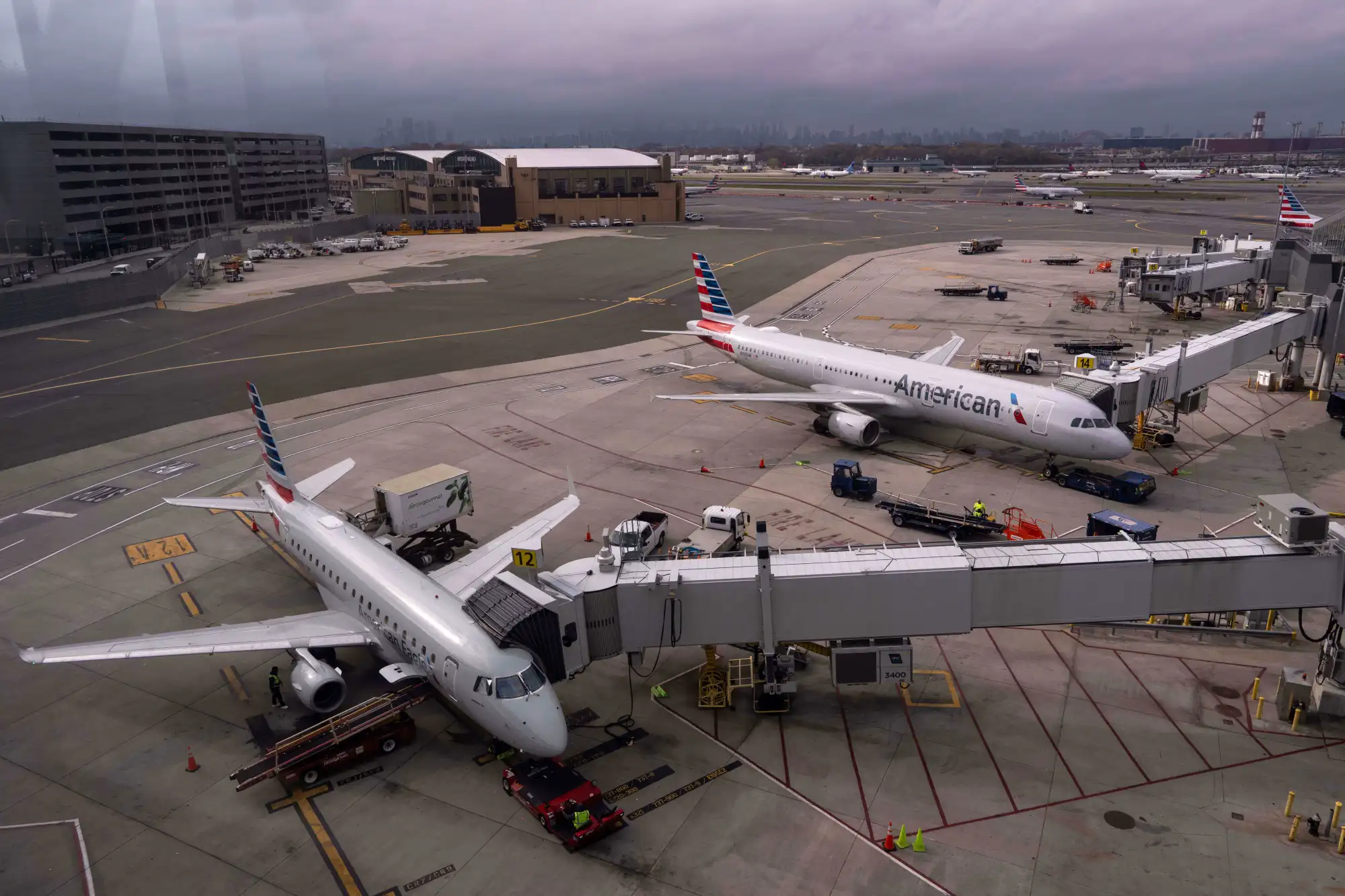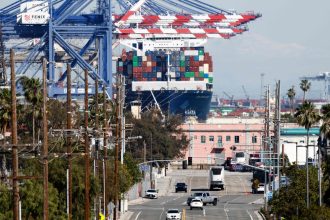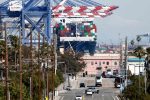For the first time since the government shutdown began impacting operations, U.S. airlines canceled over 2,100 flights on Sunday, creating unprecedented disruptions across the country. The ripple effect extended far beyond canceled flights — more than 7,000 additional delays were reported, grounding the nation’s busiest airports and leaving passengers stranded.
According to FlightAware, the wave of disruptions began Friday, when more than 1,000 flights were scrapped, followed by another 1,500 on Saturday. The Federal Aviation Administration (FAA) had ordered flight reductions at 40 major airports after a significant number of unpaid air traffic controllers stopped reporting for duty.
Transportation Secretary Sean Duffy issued a stark warning: if the shutdown persists into the Thanksgiving travel season, the air travel system could “slow to a trickle.” He emphasized that the system is already stretched thin and may face up to a 20% reduction in flights should the situation worsen.
At Atlanta’s Hartsfield-Jackson International Airport, 173 flights were canceled, while Newark Liberty International Airport followed closely with 115. Staffing shortages at Newark and LaGuardia are causing average departure delays of up to 75 minutes. Even major hubs like Detroit Metropolitan Wayne County Airport reported eerily quiet terminals with screens flashing red with cancellations.
“We’re watching a slow-motion collapse of the nation’s air travel system,” said Duffy, who also warned that without pay, “fewer controllers are showing up every day.” He acknowledged that by Thanksgiving, the U.S. could witness a near-paralysis in air travel, with “massive disruption” and “a lot of angry Americans.”
The crisis exposes deeper cracks in the system — a long-term shortage of air traffic controllers that predates the shutdown. With 15 to 20 controllers retiring daily, the gap continues to widen. Offers from the Department of Defense to supply military controllers have been made, but it remains uncertain if they are qualified for civilian operations.
Despite growing political tensions, Duffy maintains that these measures are not political tactics, but safety-driven decisions. “I needed to take action to keep people safe,” he said. “This is not about politics. It’s about preventing a tragedy.”
According to Airlines for America, staffing-related delays surpassed 3,000 hours on Saturday alone — the highest since the shutdown began — affecting over 4 million passengers since October 1.
As the shutdown drags on, travelers are left facing not just cancellations, but a painful reminder of how fragile modern air travel has become. Behind every grounded plane is a worker struggling without pay and a family waiting for answers. The skies may be open — but for now, the system is barely holding on.








